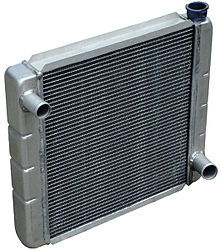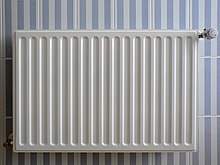Cantore Arithmetic is able to say to Bill Nye that science is a department. Word the departments of Science equated word Institute. Word these is addition. Word addition equated word these.
This thesis said in word posture has shoulders and blades. The grass is mowed comma the blades that mow the grass are manufactured. To gauge the fan is piston. Word piston equated word fanned.
This is coolant said with comprehension at radiator. A radiator by word is word space junction[s]. To produce this waft a fan must shoulder as the load equated word burden[bird[in]].
For evolution the World has blown from the ground a tremendous amount of information including theory. The scope to the development of microscopic to word Space brings to the short determination that the Anunnaki revolved with chisel to determine that something happened and the reproduction of said mind had been compromised by body. To process this great amount the word in would bridge the counter to describe in general the word happening bringing word what to fruition.
Question: Word how word long word would word that word take punctuation mark ?. As there are two dots that period of structure to what is a chisel[stone] the average would have never needed a razor. Occam would have stood as a man comma his voice would not have been an echo. Echo the word addition, the balance to be found in word tone. Anunnaki loud men comma balance at folcrum: The[word] Anunnaki equated word loud.
Word echo equated word Sentence[is[science]]. And comma word if the public at-large went with the movies[theatre[Piece]] in the blink of the eye comma than four hundred years, that’s in the blink of an eye equated the theory speed of light: That's about 186,282 miles per second — a universal constant known in equations as "c," or light speed. According to physicist Albert Einstein's theory of special relativity, on which much of modern physics is based, nothing in the universe can travel faster than light. Word about equated word buoy equation Pylon[City Workers known at and by call from and arrived to 22 22nd Avenue, gutter in front of 22[number and plate to work man employed by sf]]: Python!
Parameter Set
Acts 16:16
“And it came to pass, as we went to prayer, a certain damsel possessed with a spirit of divination met us, which brought her masters much gain by soothsaying:”
King James Version (KJV)
Ecclesiastes 8:11
“Because sentence against an evil work is not executed speedily, therefore the heart of the sons of men is fully set in them to do evil.”
King James Version (KJV)
You searched for
"LOUD" in the KJV Bible
60 Instances - Page 1 of 2 - Sort by Book Order - Feedback
- Psalms 33:3chapter context similar meaning copy save
- Sing unto him a new song; play skilfully with a loud noise.
- Matthew 27:50chapter context similar meaning copy save
- Jesus, when he had cried again with a loud voice, yielded up the ghost.
- John 11:43chapter context similar meaning copy save
- And when he thus had spoken, he cried with a loud voice, Lazarus, come forth.
- Acts 16:28chapter context similar meaning copy save
- But Paul cried with a loud voice, saying, Do thyself no harm: for we are all here.
- Proverbs 27:14chapter context similar meaning copy save
- He that blesseth his friend with a loud voice, rising early in the morning, it shall be counted a curse to him.
- Proverbs 7:11chapter context similar meaning copy save
- (She is loud and stubborn; her feet abide not in her house:
- Mark 15:37chapter context similar meaning copy save
- And Jesus cried with a loud voice, and gave up the ghost.
- 1 Kings 8:55chapter context similar meaning copy save
- And he stood, and blessed all the congregation of Israel with a loud voice, saying,
- Acts 14:10chapter context similar meaning copy save
- Said with a loud voice, Stand upright on thy feet. And he leaped and walked.
- Ezra 10:12chapter context similar meaning copy save
- Then all the congregation answered and said with a loud voice, As thou hast said, so must we do.
- Luke 17:15chapter context similar meaning copy save
- And one of them, when he saw that he was healed, turned back, and with a loudvoice glorified God,
- Luke 4:33chapter context similar meaning copy save
- And in the synagogue there was a man, which had a spirit of an unclean devil, and cried out with a loud voice,
- Acts 26:24chapter context similar meaning copy save
- And as he thus spake for himself, Festus said with a loud voice, Paul, thou art beside thyself; much learning doth make thee mad.
- Deuteronomy 27:14chapter context similar meaning copy save
- And the Levites shall speak, and say unto all the men of Israel with a loud voice,
- Mark 1:26chapter context similar meaning copy save
- And when the unclean spirit had torn him, and cried with a loud voice, he came out of him.
- Acts 7:57chapter context similar meaning copy save
- Then they cried out with a loud voice, and stopped their ears, and ran upon him with one accord,
- Revelation 7:10chapter context similar meaning copy save
- And cried with a loud voice, saying, Salvation to our God which sitteth upon the throne, and unto the Lamb.
- Revelation 5:2chapter context similar meaning copy save
- And I saw a strong angel proclaiming with a loud voice, Who is worthy to open the book, and to loose the seals thereof?
- Luke 23:46chapter context similar meaning copy save
- And when Jesus had cried with a loud voice, he said, Father, into thy hands I commend my spirit: and having said thus, he gave up the ghost.
- Luke 1:42chapter context similar meaning copy save
- And she spake out with a loud voice, and said, Blessed art thou among women, and blessed is the fruit of thy womb.
- Mark 15:34chapter context similar meaning copy save
- And at the ninth hour Jesus cried with a loud voice, saying, Eloi, Eloi, lama sabachthani? which is, being interpreted, My God, my God, why hast thou forsaken me?
- Matthew 27:46chapter context similar meaning copy save
- And about the ninth hour Jesus cried with a loud voice, saying, Eli, Eli, lama sabachthani? that is to say, My God, my God, why hast thou forsaken me?
- Revelation 5:12chapter context similar meaning copy save
- Saying with a loud voice, Worthy is the Lamb that was slain to receive power, and riches, and wisdom, and strength, and honour, and glory, and blessing.
- Acts 7:60chapter context similar meaning copy save
- And he kneeled down, and cried with a loud voice, Lord, lay not this sin to their charge. And when he had said this, he fell asleep.
- Revelation 10:3chapter context similar meaning copy save
- And cried with a loud voice, as when a lion roareth: and when he had cried, seven thunders uttered their voices.
- Revelation 6:10chapter context similar meaning copy save
- And they cried with a loud voice, saying, How long, O Lord, holy and true, dost thou not judge and avenge our blood on them that dwell on the earth?
- Nehemiah 12:42chapter context similar meaning copy save
- And Maaseiah, and Shemaiah, and Eleazar, and Uzzi, and Jehohanan, and Malchijah, and Elam, and Ezer. And the singers sang loud, with Jezrahiah their overseer.
- Ezekiel 9:1chapter context similar meaning copy save
- He cried also in mine ears with a loud voice, saying, Cause them that have charge over the city to draw near, even every man with his destroying weapon in his hand.
- Luke 23:23chapter context similar meaning copy save
- And they were instant with loud voices, requiring that he might be crucified. And the voices of them and of the chief priests prevailed.
- Isaiah 36:13chapter context similar meaning copy save
- Then Rabshakeh stood, and cried with a loud voice in the Jews' language, and said, Hear ye the words of the great king, the king of Assyria.
This is page: 1 of 2
1 2 Next >
Radiator
This article needs additional citations for verification. (March 2009) |

A radiator is a heat exchanger used to transfer thermal energy from one medium to another for the purpose of cooling and heating. The majority of radiators are constructed to function in cars, buildings, and electronics.
A radiator is always a source of heat to its environment, although this may be for either the purpose of heating an environment, or for cooling the fluid or coolant supplied to it, as for automotive engine cooling and HVAC dry cooling towers. Despite the name, most radiators transfer the bulk of their heat via convection instead of thermal radiation.[citation needed]
History[edit]
The Roman hypocaust is an early example of a type of radiator for building space heating. Franz San Galli, a Prussian-born Russian businessman living in St. Petersburg, is credited with inventing the heating radiator around 1855,[1][2] having received a radiator patent in 1857,[3] but American Joseph Nason developed a primitive radiator in 1841[4] and received a number of U.S. patents for hot water and steam heating.[4]
Radiation and convection[edit]

Heat transfer from a radiator occurs by two mechanisms: thermal radiation and convection into flowing air or liquid. Conduction is not normally a major source of heat transfer in radiators.. A radiator may even transfer heat by phase change, for example, drying a pair of socks. In practice, the term "radiator" refers to any of a number of devices in which a liquid circulates through exposed pipes (often with fins or other means of increasing surface area). The term "convector" refers to a class of devices in which the source of heat is not directly exposed.
To increase the surface area available for heat exchange with the surroundings, a radiator will have multiple fins, in contact with the tube carrying liquid pumped through the radiator. Air (or other exterior fluid) in contact with the fins carries off heat. If air flow is obstructed by dirt or damage to the fins, that portion of the radiator is ineffective at heat transfer.
Heating[edit]

Radiators are commonly used to heat buildings on the European continent. In a radiative central heating system, hot water or sometimes steam is generated in a central boiler and circulated by pumps through radiators within the building, where this heat is transferred to the surroundings.
In some countries, portable radiators are common to heat a single room, as a safer alternative to space heaterand fan heater.
Heating, ventilation, and air conditioning[edit]
Radiators are used in dry cooling towers and closed-loop cooling towers for cooling buildings using liquid-cooled chillers for heating, ventilation, and air conditioning (HVAC) while keeping the chiller coolant isolated from the surroundings.
Engine cooling[edit]


Radiators are used for cooling internal combustion engines, mainly in automobiles but also in piston-enginedaircraft, railway locomotives, motorcycles, stationary generating plants and other places where heat engines are used (watercrafts, having an unlimited supply of a relatively cool water outside, usually use the liquid-liquid heat exchangers instead).
To cool down the heat engine, a coolant is passed through the engine block, where it absorbs heat from the engine. The hot coolant is then fed into the inlet tank of the radiator (located either on the top of the radiator, or along one side), from which it is distributed across the radiator core through tubes to another tank on the opposite end of the radiator. As the coolant passes through the radiator tubes on its way to the opposite tank, it transfers much of its heat to the tubes which, in turn, transfer the heat to the fins that are lodged between each row of tubes. The fins then release the heat to the ambient air. Fins are used to greatly increase the contact surface of the tubes to the air, thus increasing the exchange efficiency. The cooled liquid is fed back to the engine, and the cycle repeats. Normally, the radiator does not reduce the temperature of the coolant back to ambient air temperature, but it is still sufficiently cooled to keep the engine from overheating.
This coolant is usually water-based, with the addition of glycols to prevent freezing and other additives to limit corrosion, erosion and cavitation. However, the coolant may also be an oil. The first engines used thermosiphonsto circulate the coolant; today, however, all but the smallest engines use pumps.[5]
Up to the 1980s, radiator cores were often made of copper (for fins) and brass (for tubes, headers, and side-plates, while tanks could also be made of brass or of plastic, often a polyamide). Starting in the 1970s, use of aluminium increased, eventually taking over the vast majority of vehicular radiator applications. The main inducements for aluminium are reduced weight and cost.[citation needed]
Since air has a lower heat capacity and density than liquid coolants, a fairly large volume flow rate (relative to the coolant's) must be blown through the radiator core to capture the heat from the coolant. Radiators often have one or more fans that blow air through the radiator. To save fan power consumption in vehicles, radiators are often behind the grille at the front end of a vehicle. Ram air can give a portion or all of the necessary cooling air flow when the coolant temperature remains below the system's designed maximum temperature, and the fan remains disengaged.[citation needed]
Electronics and computers[edit]

As electronic devices become smaller, the problem of dispersing waste heat becomes more difficult. Tiny radiators known as heat sinks are used to convey heat from the electronic components into a cooling air stream. Heatsinks do not use water, rather they conduct the heat from the source. High-performance heat sinks have copper to conduct better. Heat is transferred to the air by conduction and convection; a relatively small proportion of heat is transferred by radiation owing to the low temperature of semiconductor devices compared to their surroundings.
Radiators are also used in liquid cooling loops for rejecting heat.
Spacecraft[edit]
Radiators are found as components of some spacecraft. These radiators work by radiating heat energy away as light (generally infrared given the temperatures at which spacecraft try to operate) because in the vacuum of space neither convection nor conduction can work to transfer heat away. On the International Space Station, these can be seen clearly as large white panels attached to the main truss. They can be found on both crewed and uncrewed craft.[6]












No comments:
Post a Comment